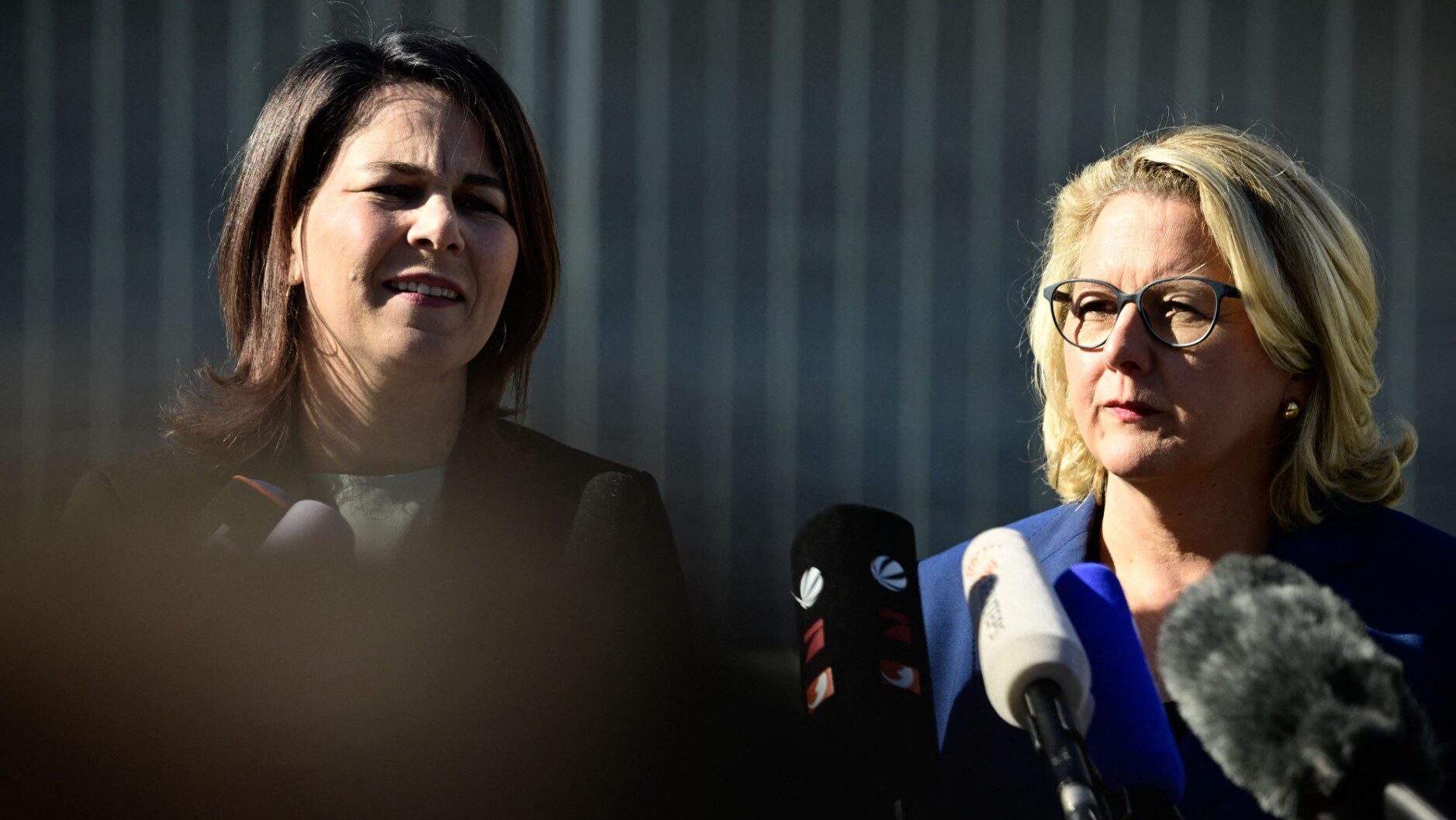
German Foreign Minister Annalena Baerbock (left) with Economic Cooperation and Development Minister Svenja Schulze.
Photo: TOBIAS SCHWARZ / AFP
Germany’s recently published regional development strategy in Asia plans to build on Green Foreign Minister Annalena Baerbock’s “feminist foreign policy” and emphasizes the role of gender equality when seeking to build new development partnerships, Euractiv writes.
The document is part of Germany’s first-ever National Security Strategy launched this year, which identified—among others—building partnerships in Asia as a primary objective to safeguard national interests.
The new Asian development strategy was presented by the Ministry of Economic Cooperation and Development last week and asserted that Berlin would “prioritize gender-transformative projects” in identifying and funding key partnerships.
In fact, the feminist focus ranks highest among the five pillars of the new German Asia strategy. “How much of this is satire?” asked a German X user after the ministry published the announcement.
Dialog ist der Schlüssel, um internationales Handeln voranzubringen. Unsere neue #Asienstrategie konzentriert sich dabei auf fünf Elemente: #feministischeEntwicklungspolitik, klimagerechte Entwicklung, #GuteArbeit, soziale Sicherheit & Biodiversität. 👉https://t.co/UnnXSnFCRz pic.twitter.com/t6sMNtrHmv
— Bundesentwicklungsministerium (@BMZ_Bund) December 12, 2023
The other pillars the document put forward were social security and green development while officials made it clear that future cooperation with Asian countries is vital to counter Chinese and Russian influence and to secure critical materials needed for Germany’s green transition.
“Our goal is to jointly shape an ecologically sustainable transformation in a socially just way,” Germany’s socialist Development Minister Svenja Schulze explained.
The new strategy builds directly upon Annalena Baerbock’s so-called “feminist foreign policy,” which—similarly to frameworks adopted by Spain and France in the past—puts gender equality at the center of a broad range of foreign policy discussions, from peace talks to climate negotiations.
Yes, that Annalena Baerbock, whose diplomatic blunders and financial scandals never seem to take a break. Emphasizing her commitment to gender equality, for instance, she spends over €136,000 on her taxpayer-funded make-up annually.
In practice, the feminist policy framework means that Baerbock prioritizes meeting female politicians over their male colleagues during bilateral visits, including on a recent trip to Latin America where she met the Brazilian environment minister and the Colombian vice president.
But whether inserting feminist policy directives into foreign development partnerships is a good strategy remains to be seen. Restricting Germany’s economic opportunities to favor only those who are willing to incorporate gender equality targets into their projects does not necessarily seem like a sound idea, especially given that one of the main objectives is countering Chinese investments, which are already orders of magnitude larger than Berlin could ever hope for.
All the while, no one seems to ask whether there was even a demand for feminist regional development in Asia in the first place, as critics of the strategy noted.
While saying that investing in socio-ecological sustainability is good idea, Heiner Janus, a researcher at the German Institute of Development and Sustainability (IDOS), questioned “whether projects with this focus are wanted by recipient countries and whether it meets their perceived needs,” adding that there’s a much greater demand for infrastructure projects outside Europe at the moment.
